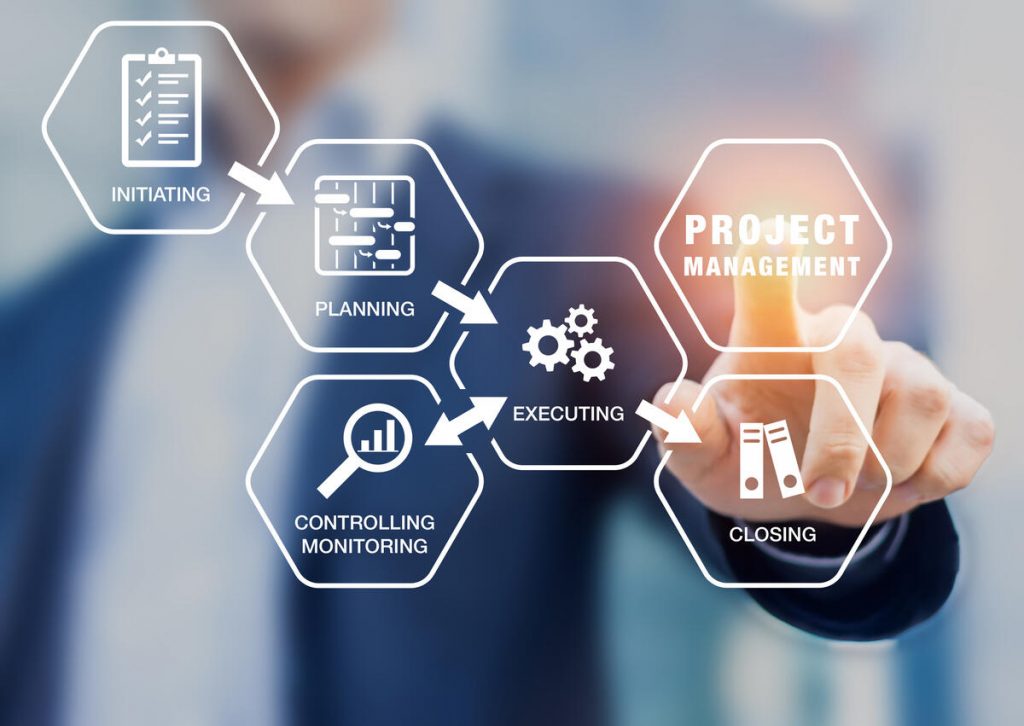In an era of full blown uncertainty and market volatility with costs and risks of failure heading northwards, there is no better time to ensure qualified and professional project managers take the center-stage in both simple and complex development projects to meet project objectives.
Project Management is the overall planning, control and the coordination of a project from inception to completion aimed at meeting a client’s requirements and ensuring completion on time, within cost and to require quality standard (CIOB, 1988).
It comprises four main stages viz;
- Stages:
– Initial Stage
– Pre-construction Stage
– Construction Stage
– Completion Stage
- Justification for Project Management
- As a means of avoiding the ills inherent in unplanned and uncoordinated project execution;
- The need for a technical expert to take charge and control of events in the project implementation process;
- Requirement for an understanding of the intricacies of coordinating, controlling, and directing the efforts and activities of the various professional teams;
- Project focus and care for the environment;
- Managing and monitoring of time, cost, material, quality and environmental constraints;
- Identification of Stakeholders, their Engagement and Management;
- Conflict Management and Resolution.
- Test Criteria for a Successful Project
A project is termed successful if it passes four success test criteria i.e.
- The time criterion – completed on time;
- The cost or money criterion – completed within budget;
- The effectiveness criterion – completed in accordance with the original set of performance and quality standards; and
- Client’s satisfaction criterion – accepted by the intended users or clients whether the client is internal or outside the organisation.
- Roles and Responsibilities of Project Managers
Our roles and responsibilities as Project Managers include:
- To lead and co-ordinate the project.
- Identify project objectives and ensure that they are delivered to client satisfaction.
- To identify contractual obligations of parties to the contract.
- To give status and progress report to client.
- Identify stakeholders’ interests and manage their expectations.
- Identify project risk and plan response.
- To manage issues on the project and resolve them promptly.
- To make recommendation to client on payments.
- Challenges
As project leader, the following challenges can be experiences:
- Challenges of building a cohesive project team in terms of resolving the conflicts between the consultants; conflicts between the main contractors and nominated contractors.
- Non-completion of project assignments on time and resultant delays to succeeding work items.
- Client’s numerous change orders at project execution stage giving rise to many abortive works with resultant cost and time implications.
- Occasional non-compliance with work specification by contractors.
- Non-engagement of the project manager at initial and planning stages of the project which can create the problem of poor coordination that may become fatal to the project.
- Strategies for success
- Use of emotional intelligence skills – social awareness and social skill to build a cohesive project team and detailed responsibilities according to clients schedule of duties.
- Promotion of teamwork and collaboration enhances team members’ response time. This is achieved through stakeholders’ relationship management.
- Educating clients representatives on the implications – (risks of safety, cost overrun and time overrun) of request for frequent changes at execution stage.
- Project inspection and quality audit to ensure compliance with work specification.
- Review of Project completion period based on realistic estimate of required time to complete the project.
- Review and update of design by Design Consultants for ease of execution.
- Creation of Issue logs for taking records of when issues are raised and resolved.
- Next Time Around:
You can no longer afford to fail both yourself, your stakeholders and endanger lives! Get it right the first time!
- Review of all issues carried out by the client in the initial stages of the project orders during execution.
- Pay more attention to stakeholders’ identification and their requirements.
- Deploy project management tools of risk and issue log for resolution of issues and risk on the project.
- Request input of experienced facilities manager especially during the initial stage of the project.
- Ensure adequacy and completeness of agreement between the main contractor and subcontractors to reduce dispute and delay to work progress.
- Create opportunity for facilities management in earlier stages of construction projects for enhanced operational and maintenance strategy.
ESV Cyprian Konkwo ANIVS, RSV, M. IoD, MIWFM, MCAI, F. ABMAN
Managing Partner
Ora Egbunike & Associates


